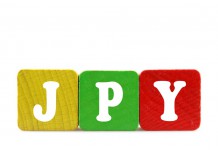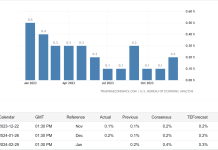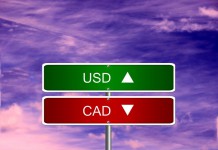 Last year ESMA introduced a product intervention on the CFD market which practically limited the level of leverage in Europe up to 1:30. On 31 July it announced that it’s bringing its product intervention to an end. In response to that, the Polish Financial Supervision Authority (KNF) prepared its draft regulations. This and the future of leverage in Poland was the subject of an interview conducted by Krzysztof Kamiński from Comparic24tv with Filip Kaczmarzyk, member of the management board of X-Trade Brokers (XTB) Brokerage House. Its transcript is presented below.
Last year ESMA introduced a product intervention on the CFD market which practically limited the level of leverage in Europe up to 1:30. On 31 July it announced that it’s bringing its product intervention to an end. In response to that, the Polish Financial Supervision Authority (KNF) prepared its draft regulations. This and the future of leverage in Poland was the subject of an interview conducted by Krzysztof Kamiński from Comparic24tv with Filip Kaczmarzyk, member of the management board of X-Trade Brokers (XTB) Brokerage House. Its transcript is presented below.
Krzysztof Kamiński (KK) : What were the assumptions of KNF’s draft?
In principle KNF’s draft is identical to the intervention introduced by ESMA, i.e. same principles on leverage, risk warning, negative balance protection, ban on any cash backs and incentives apply. KNF went a step further by introducing a new category of investor – experienced retail client. Let me go back in time and describe how it all came about. The Chamber of Polish Brokerage Houses has cooperated closely with KNF on introducing this type of client. It would be hard for me to say right now who initiated that; however, the idea behind it was that both a retail and experienced client are two quite extreme types of client. On the one hand, we have a retail client with highly limited level of leverage, and on the other hand there is a professional client who can do it practically without any limits.
The problem was that in order to become a professional client in Poland, those requirements were really strict. They were practically the same as in the EU, but here we have relatively different conditions with respect to investor and nobody took that into account, that’s why we opted for an intermediate solution and that’s how the idea of an experienced client came about, for whom the criteria for achieving that status were lower than for a professional client, but he/she could access better transaction conditions.
We cooperated intensely on all kinds of calculations, KNF asked many related questions. And the latest decision is the result of all those calculations, talks, consultations, etc.
It’s clear that KNF made a move in favour of the sector and changed a prevailing stereotype that KNF is merely an authority that puts the screws on and hardly ever acted favourably towards the sector. And there’s been a lot of talking in the Forex sector that clients keep escaping, particularly to Australia, where the Forex market has operated for many years and leverage up to 1:500 is available. That was pointed out and at the same time ESMA itself was tough in its decision and refused to change anything. I think that KNF made a positive impact on the market.
I think KNF surprised everybody by this decision and we are all very happy.
KK: However, when it comes to ESMA, it familiarized itself with the draft before it came into force and made a recommendation that this draft in not the best solution. What’s your view on ESMA’s decision as a member of management board of a brokerage house?
ESMA is fully authorized to criticize this kind of idea, likewise KNF is free not to go along with such criticism and make a decision that it finds most suitable. Now that a year has passed since the product intervention was introduced, when we analyse the numbers, obviously apart from improvement of client’s safety, i.e. 50% on stop-out, harmonized risk warning, limitation of leverage level didn’t influence the results as ESMA originally expected.
And to give you an example, our brokerage House – XTB, we worked out those results one year back, and it turns out that 77% o clients make losses, whereas a year ago it was about 80-82%, so it perfect clear that the effects that ESMA wanted to achieve have not been reached, as an improvement of statistics by 3% to me is not an improvement at all. However, it had an impact on clients’ turnovers, which have fallen dramatically. Clients lost their purchasing power and the turnovers were much lower.
Now, its worth considering whether by limiting somebody, i.e. clients of brokerage houses, whether this is the right path to follow in order to protect them? Because this is forcing them to do something. They have a clear view of the ongoing situation on the market so the natural response was an escape of clients to brokerage firms to whom those limitations don’t apply. So, in conclusion, KNF was, first of all, updated on those problems and second, it was aware of the situation and third it saw how brokerage firms’ revenues dropped, now that they are operating in very difficult market conditions. Tightening approach when it comes to Forex would make the whole situation even worse.
So I think that KNF took it all into consideration. However, its not that the introduction of the new principles, changes the playing field by 90 degrees, as the requirements applicable to an experienced retail trader are still hard to meet. It’s not tat every client can do that – we’re talking just about a certain percentage of clients in each brokerage house, who will be able to achieve the status of an experienced client.
So there’s no talking that the situation has changed by 90 degrees and we will be moving back to June 2018 – and that won’t happen. However, KNF left this possibility open for brokerage houses and their clients who have some experience and know how to invest on that market and what risk is involved, etc, so that they can at least partially get back their purchasing power.
KK: An experienced client will be able to access leverage up to 1:100. And now an obvious question arises – how will it be possible to meet those requirements?
There are a few conditions to be met. First of all, KNF’s approach is twofold. First, a client must have specific experience and second, the right education.
So when it come’s to a client’s trading experience, it must prove that during the last 24 months, within at least four quarters, it managed to open at least 10 transactions of at least EUR 50,000 or, 50 transactions of EUR 10,000 – that’s the second condition. The third one requires that during four quarters within two years, it managed to open transactions worth EUR 2,000,000. Plus there is an additional condition that makes things a bit complicated – there need to be at least 40 transactions in each of those quarters. That closes the experience-related part.
And then comes the education-related part. It requires that a client can prove it has relevant education to trade on the CFD market, which can be in the form of a licence of Financial Adviser, Stockbroker, CFA and several other titles. The alternative is sufficient number of training hours, conducted by competent institutions, culminated in passing exams.
KK: Since we are on this topic. Who will be authorised to organise such training?
Yesterday’s decision specifies those institutions. For us the key thing is that brokerage houses will be authorised to organise such training, i.e. institutions involved in trading in CFDs. This seems to be a good solution as brokerage houses will not depend on third-party companies. Moreover, it can be integrated very smoothly as part of one transactional system, which will make it easier for a client to pass those tests and secondly to pass them, as it will have a full range of training, all in one place and avoid visiting various websites, looking for institutions organizing such training, etc.
KK: 1:100 leverage will not apply to all instruments, but be limited to the main ones, right?
That’s true. 1:100 leverage will apply to Forex major pairs and the main indices and Gold. I guess these are 10 main instruments, with the exception of oil, which often fall under that category.
Overall, it seems that instruments that clients find the most interesting will be available with the 1:100 leverage.
KK: Oil may not have been included because of its volatility, which can reach 2-3% and that might have made KNF decide that throwing oil into that category could be going too far.
I totally agree and don’t insist that oil must be included because it is as you are saying. Besides, we have big opening gaps and large moves as a reaction to data.
KK: Talking about stop-out, has anything changed or does 50% of deposit still apply?
No, when it comes, 50% based on the account balance, which we discussed with KNF for a long time. An idea was brought up that stop-out should apply to a specific position. The Chamber argues that it’s not the bad idea as clients investing from the perspective on an account balance could be quickly stopped out on particular positions and could complicate management of their accounts significantly and KNF accepted those arguments so status quo has been kept.
KK: So in a situation of a stop-out on a particular instrument, there would be some concerns about diversification of one’s portfolio and once single positions were closed, this diversification would suffer?
Exactly, that’s what our arguments were about.
KK: And talking specifically about changes in leverage, will every brokerage firm operating legally in Poland, be able to offer 1:100 level for experienced clients?
Yes, I think so. It seems that any broker that will be able to meet KNF’s requirements and if a client can prove that it had a specific turnover and will confirm that it did all those training sessions, then I guess any of them could offer them. Let’s remember that even before ESMA rules were introduced, in Poland we have minimum deposit at 1% – that was, I think this Act on Trading of 2016, so now it seems that in terms of transactional conditions, this experienced client will be very similar to a professional client.
KK: Will brokers operating in Poland will also be allowed to offer this level of leverage to clients from outside of Poland?
To the best of my knowledge, this will not be the case. KNF requires that a client be a Polish resident, which applies only to brokers in Poland. It will not be possible to rely on international passporting, even if we, as XTB operate on other EU markets, we will have to adapt to the local regulations.
KK: Lets’ come back for a while to the subject of training. How many training sessions will a client have to do to become an experienced client?
It’s 50 hours, which is quite a lot.
KK: Are there any requirements specifying what the contents of such training should be? Or can the topics repeat and once 50 hours has been done, it can be ticked off?
According to the requirement, training should deal with CFDs or other derivatives and this is all we know as for now. To be honest, this provision is quite general so we expect that within a few weeks there should be some specification in this regard by KNF. Bust still, even within this area, much interesting training can be created. Starting from trading, theory, to risk management etc. So, this gives lots of opportunities for brokerage houses. Besides it’s important that it is offered to clients in friendly, approachable way. No matter whether we are talking about on-site sessions or webinars. And even right now XTB has a rich base of over 500 hours of training in this area. So, we will be acting quick to make it available to our clients.
KK: As I understand KNF does not differentiate between a webinar and on-site training?
Now, the requirement is to do at least 50 hours of training on CFDs and derivatives, so this is not defined in any way.
KK: And talking about leverage in Poland, can you say what the current trends are? A year ago, ESMA intervened and some opinions started circulating that Forex and CFDs are doomed to die in Europe, as experience shows that regulators tend to tighten up the rules. KNF made a positive move with Polish and brokerage houses in mind. What trends do you see? Will there be more space for increasing the level of leverage or will it stabilize at 1:100?
I agree that the last several years have seen intensive tightening up the limits on OTC markets for Forex brokers. Truth be told, I think this has ended and now we will have a moment to breathe and that both ESMA and KNF are satisfied about the changes they have introduced. For sure, they increase retail clients’ safety and it seems to me that right now the situation will calm down and there will be no regulations in the foreseeable future.
Talking about leverage as such, we can look at Japan and USA as an example where it was significantly reduced at some point, and turnovers dropped and after that they came back to normal. In our opinion, what will happen is some king of consolidation, when it comes to the offer and brokerage houses. And secondly, clients need to get used to the new conditions. True, a year has passed but in my opinion, it hasn’t happened yet, it’s still too early. I think that long term, those turnovers will be recovering. And I think it’s a good moment for brokers to win new clients, sign new agreements on cooperation with new partners.
Footage with the whole interview in the Polish language is available below.
Comparic Group, with its team of top experts in financial markets and operating the widest range of financial, investment and business media in Poland, will be happy to assist you in entering the Polish market or launching your services in Poland. Feel free to contact us at redakcja@comparic.pl, tel. +48 731 244 014.
















